With Industrial Experience
We encourage all our students to consider spending their third year “out in the field” – either gaining industrial experience, studying abroad, or a combination of these. These opportunities are available all over the world.
If you opt for our With Industrial Experience programme, you’ll get the opportunity to put into practice some of the skills you’ve already developed in your first two years. This means that you’ll come back to us for your fourth year with greater confidence, as well as practical experience, which you can take forwards into your final year of studies and of course whatever your plans are after graduation.
What’s more, your placement will give you a proven employment track record and professional networking opportunities, which will give you a significant advantage when you set out to find your first graduate job. Many graduate employers now use industrial placements as a pathway to permanent roles, so you may even get a graduate job offer from your placement provider.
The with Industrial Experience option is also available as part of our BSc Business and BSc Business and Environment programmes in Penryn.
![]()
92% of WIE finalists feel well-prepared for employment
Career Registration 2024
![]()
9/10 WIE employers are in The Times Top 100 Graduate Employers
2023/24
![]()
300 students secured placements through the With Industrial Experience programme in 2023/24
I wanted to find an internship in a non-traditional sector to fully explore the opportunities that an Economics degree could bring, and to understand how the skills learnt at University could be utilised in a professional context.
Anthony
BSc Economics with Industrial Experience
With Industrial Experience - frequently asked questions
Some common questions are listed below, if you have a question about the Industrial Experience programme that isn't answered here, please get in touch with the Careers Team: business-school-careers@exeter.ac.uk.
Students follow a comprehensive careers management programme and are supported in their work placement search by the Business School’s Employability Advisers, Programme Director and WIE Student Ambassadors. This support starts in year 1, through engaging and interactive workshops, guided learning, 121s, events, and peer support.
Ultimate responsibility for sourcing and securing the work placement rests with the student: however, the network of support and access to job opportunities and employers through the programme, gives WIE students every chance of success.
The majority of students who actively apply and compete for roles secure a placement. It is a competitive process in an ever-changing labour market, which requires resilience and persistence. However, we adapt our support depending on recruitment trends, to make sure students have the skills they need to succeed, and are on hand to advise and support students every step of the way
This will vary depending on your placement provider and location. Salaries typically range from £19,000 - £23,000 but can be as high as £52,000.
Placements usually last for 12 months although this can be flexible subject to a minimum placement length requirement of 33 weeks excluding holidays. It may be possible to extend the placement period, depending on the final year start dates. A maximum of 2 placements can count towards the industrial placement year.
Four years with your third year on placement.
- Entry tariff is the same as the corresponding 3 year programmes.
- A minimum 1st year average grade of 50% for taught and assessed modules.
- Successful completion of the With Industrial Experience taught modules.
Yes you would be registered as a student and eligible for the usual student discounts, exceptions and support whilst out on placement. For example:
- Council Tax (where eligible)
- Student Fees and Finances
- Oyster Cards
- NUS
- Guild Services
- UNiDAYS
- Uni Card
You also retain access to all student services and support at the University, including Student Finance and Wellbeing Services.
As part of the With Industrial Experience programme, there are two non-credit bearing modules you must complete. These modules prepare you for the placement search and recruitment process including CVs, interviews, LinkedIn and assessment centres. These sessions are compulsory and will appear on your timetable.
The BSD1002 module starts in term 2 of year 1, followed by BSD2002 in your 2nd year. There are also monthly online sessions during your placement year, BUS3002, to help you with preparing for the assessments.
Currently students are charged 20% of their tuition fee for undertaking a full year work placement as part of their programme. However this fee is subject to annual review. Fees cover module assessment and support from your personal and academic tutor, employability advisers, IT services and other student support services. For further information visit: www.exeter.ac.uk/students/finance/studentfees/
You can complete your placement in the UK or abroad. Placements abroad will be considered on a case-by-case basis, taking a thorough risk assessment into account.
Placements can be taken across a broad range of sectors, though we typically see students going into roles in:
- Accountancy, Audit & Financial Services.
- Commercial Management, Supply Chain & HR.
- Government & Economic Services.
- Sales, Marketing & PR.
- Corporate, Retail & Investment Banking.
- Consulting.
Placements can be taken in large companies, SMEs, micro companies and also Charities and Not for Profit Organisations.
You simply revert to a standard three year degree.
The placement year assessment currently comprises of:
- An assignment on professional skills.
- A Business Report on your understanding of the business.
You will be allocated an academic tutor to support you during your placement year.
Students who graduate with With Industrial Experience tend to have a high success rate compared to students on standard 3-year degree programmes. According to Graduate Outcomes data 2020/21 (HESA, Guardian GDS), 97.1% of WIE students had a positive graduate destination score. Many WIE students return to their placement employer to join their graduate schemes.
The With Industrial Experience programme is open to all Business School students, with a cut-off date for signing up in the 1st year. In 2023/24 we had 300 students on placement.
Meet our industrial placement students
Ayra

The Walt Disney Company - Advertising, Marketing & PR
BSc Business Management with Marketing with Industrial Experience
Deciding to undertake a placement during my studies was a decision I only made once beginning my degree at Exeter but ended up becoming one of the most important decisions I have made during my time at university.
The Business School Careers Team were extremely helpful during my placement search, guiding me through each stage of the application process, whether this was to look over my CV, cover letter, or to prep for an interview. When searching for marketing placement opportunities, I was immediately drawn to Disney’s variety of roles because of the creativity behind their marketing processes. After applying online, I completed a telephone interview and then attended an assessment centre.
I completed my placement at The Walt Disney Company as a Studios Marketing Intern for Searchlight Pictures. Despite working remotely for the entirety of my placement, I was given many responsibilities and opportunities that supported my role but also enabled myself to learn more outside of it. As I worked for the Searchlight Pictures brand team, my core responsibility focused on the management of film marketing assets to be supplied to various creative and media agencies, as well as specific clients or partners that were working on these film campaigns across the UK market. I was given autonomy quite quickly which was incredible as this was something I eventually became wholly responsible for, and soon enough agencies and clients started to reach out to me directly regarding the assets.
Additionally, I was also supporting the digital, publicity, creative services, trade, and sales teams on campaign development. I was particularly drawn to the digital team as I enjoyed learning about what kind of content on social media was curated to establish strong audience engagement. By conveying my interest to my manager, I was given further responsibility along with my colleague to monitor print, online and broadcast coverage to be re-shared for the Searchlight Pictures social pages across Instagram, Facebook, and Twitter.
Some additional projects I worked on included building an online fundraising initiative with other interns across the business. Our team managed to raise over 300 pounds and we also got a special mention at the end of the fundraising competition which made myself and my team feel very proud. This volunteering opportunity outside of my main role was enriching because it was another way to meet more interns across the company and challenged myself to work with new people, and to fundraise in the COVID-19 climate which wasn’t easy but was rewarding to accomplish.
I have thoroughly enjoyed my placement year despite its challenges, and I am extremely grateful for the extensive knowledge I have now gained about the entertainment industry. In building my network by talking to various colleagues and managers in and around of the company, I now look forward to discovering related opportunities within this industry for my future career.
Post graduation: TikTok - Marketing Graduate
William

Wells Fargo - Corporate Banking and Financial Services
BSc Economics with Industrial Experience
My decision to study Economics was underpinned by my desire to learn more about financial markets. I was therefore attracted to the flexibility of module selection offered by the University of Exeter Business School which allows you to focus on areas of economics that align with your interests.
I chose the With Industrial Experience programme because I was keen to apply the skills developed in my first two years of university in the financial sector. The opportunity to acquire knowledge and gain experience in the sector was extremely appealing. The support provided by the Business School to students seeking placements is incredibly useful and includes CV workshops, mock interviews and employer presentations.
I completed my placement at Wells Fargo within its Corporate Banking division. I was attracted to the position because it involved playing an active role in providing financial solutions to global corporations operating within a number of different industries. The programme also provided the opportunity to work with a number of divisions within the bank and appreciate the function of various teams, thereby delivering an extensive insight into banking.
My role primarily involved assisting Portfolio Managers with the underwriting of complex credit relationships. This required comprehensive analysis of loan requests and the production of credit reports. In addition, I supported Relationship Managers with financial updates and participated in client meetings, which was a very rewarding experience.
Throughout the year I learned a variety of technical skills and acquired a significant level of sector-specific knowledge which improved my analytical ability. In addition, my placement provided experience of building strong relationships in a professional environment and working collaboratively on business projects.
One of the major challenges of the role was learning the technical terminology associated with the banking industry. The volume of information can initially feel overwhelming, but by dedicating time to understand the concepts and asking colleagues questions, you quickly obtain knowledge that you can apply in your role. Recognising and successfully overcoming such challenges develops the resilience necessary to adapt to changes in business.
I am extremely grateful to have had the opportunity to complete my placement at one of the global leaders within the financial sector. The experience has confirmed my interest in the banking sector and highlighted the areas which I enjoy. The skills and professional network developed during my placement will be invaluable as I continue my career after university.
Post graduation: Wells Fargo - Corporate Banking Analyst
Laura
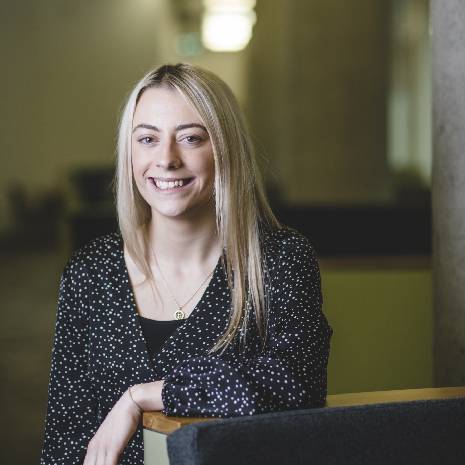
Intel Corporation - Sales Development Analyst for Team Dell
BSc Business Management with Marketing with Industrial Experience
The ’With Industrial Experience’ (WIE) pathway enabled me to join a company for a year long placement providing me with the opportunity to put my learnings from first and second year into practice, build my business knowledge and expand my professional network.
Since first year, the support from the University of Exeter Business school was huge. The countless opportunities including CV workshops, networking events and practice interview/assessment centers were instrumental in my preparation and eventual success in securing my placement.
The technology industry has always interested me due to the fast pace of change and developments so naturally I was keen to find a placement in the industry. My role at intel was Sales and Marketing focused where I worked on Team Dell, working closely with colleagues at Dell Technologies, managing the Intel-Dell relationship.
I was shocked by the amount of responsibility and trust I was given from day one, treated as a valued member of the team. Not only did the role allow me to explore marketing, working with Dell on upcoming campaigns and aligning with them in accordance with Intel’s branding regulations, I also developed a passion into data analytics. Throughout the placement I was given numerous opportunities to learn and develop, as a result I worked on growing my analytical skills. By the end of the year, I had established numerous data dashboards to support my Sales Teams business decisions and revolutionized the way data was presented within the wider international team.
Not everything was plain sailing throughout the year, in particular, I had to overcome the challenge of learning the role and building rapport with colleagues completely remotely as a result of the pandemic. Whilst hard, the experience built my confidence when reaching out to people to ask for support and to establish relationships. I therefore feel that from my placement year I have returned to my final year far more resilient.
I couldn’t be happier with my decision to undertake a placement, having gained numerous skills and knowledge. I have returned into my final year more motivated and with a greater understanding of my future career ambitions. Recently, I have secured a graduate job at Dell Technologies which, without my placement experience, I do not believe would have been achievable. For all those considering doing a placement year, I could not recommend more!
Post graduation: Dell Technologies - Field Marketing Graduate
Joseph
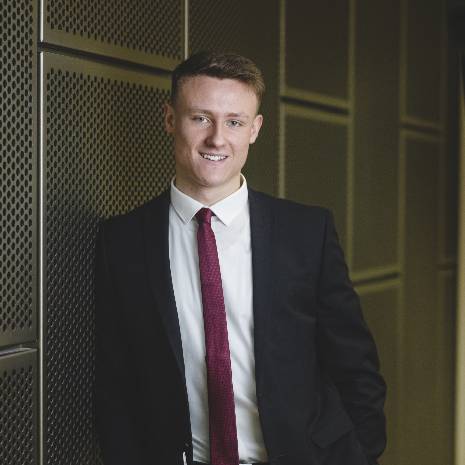
IBM - Business and Technology Consultant
BSc Economics with Industrial Experience
I enrolled on the ‘With Industrial Experience’ programme when I realised my CV lacked corporate experience. I wanted to graduate into an ambitious, future-proof industry that I had a genuine interest in, yet I recognised the increasingly competitive nature of graduate schemes. A year of corporate experience would help me differentiate myself (from the other hundreds of applicants) and allow me to choose a career that fit my criteria, rather than apply anywhere and take what I was given.
The University of Exeter Business School has a dedicated and knowledgeable team that supported the WIE cohort throughout the entire application process. This support included 1 to 1 CV and cover letter advice, LinkedIn and application form workshops, mock assessment centres and organising some of the top placement providers to visit our campus to tell us what they were looking for in a candidate. The support from the Business School, combined with a great deal of hard work, resulted in my receival of placement offers from three different companies.
I decided to join IBM as a Business and Technology Consultant. This consisted of using innovative technology and industry expertise to facilitate bp’s global digital transformation. Before starting my placement, I asked to be thrown in at the deep end so I could maximise my professional development during the year. In my second week I was presenting in front of clients after being assigned a high-responsibility role as a client-facing automation developer. This consisted of learning a new software while simultaneously using it to automate the financial processes of my designated clients based in Singapore, the US, and the UK. I would tailor each automation to the requirements of each client, then ensure it was future-proof to changing market conditions. My automations transformed many two-hour processes into processes that took a matter of seconds, while reducing the margin for human error by 80%. This work provided real value to IBM’s biggest client.
My other roles included Business Analyst, Junior Data Engineer, and Certified Scrum Master – where I was leading a Data & AI Squad to deliver an agile solution that will change the way bp track their entire global supply chain. The level of responsibility I was given was the most surprising element of my placement, as the roles I took on throughout the year were graduate-level and beyond, allowing me to develop more than I thought was possible in twelve months.
I finished my placement year with invaluable experience (at one of the biggest companies in the world), a clear and well-informed view of my desired career path and graduate job offers from IBM and some of their competitors. Crucially I also understand the roles I am not interested in, preventing me from joining a two-year graduate scheme that doesn’t suit my strengths or passions. An unexpected benefit of the placement year was the network I have built. I have formed close relationships with experts at the top of their fields, all of which are willing to mentor me for my future career. I returned to Exeter with a strong level of time management, confidence to host events at the Business School and focus to continue up-skilling for my future career alongside my degree.
Post graduation: Accenture - Consulting Analyst
Jack
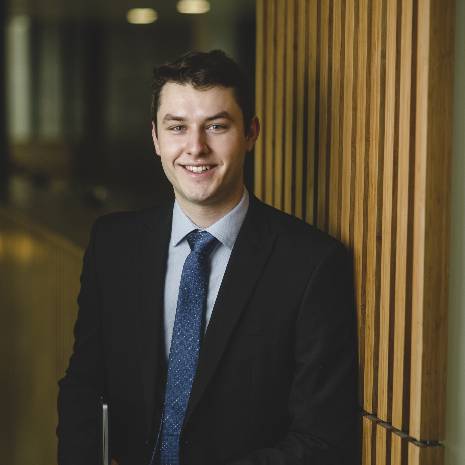
PwC - Accounting and Auditing
BSc Accounting and Finance with Industrial Experience
I joined PwC in the Cardiff office as part of the Audit team, primarily working on the audits of clients in the financial services sector. Due to being the junior member of the teams I worked on, the work I completed mainly focussed on learning how the client's internal and external operations worked, as well as understanding how the client had achieved the figures that were provided in the financial statements. This work helped assist the senior managers and partners in forming and then signing off on the correct audit opinion. Alongside the work I completed on the audits, PwC provided me the opportunity to be able to start earning a Chartered Accountant qualification, through completing lessons with a tutor, leading to me being able to sit some of the required exams.
The placement allowed me to learn a lot in a short period of time, not only the core knowledge required for conducting an audit, but also the importance of communication. In order to meet strict deadlines and complete work to a high level as an auditor, communicating with the client and your senior team members is key, otherwise it is difficult to achieve the desired result.
It also allowed me to implement characteristics that I had learned throughout my first few years at Exeter, such as being able to work as part of a team and managing my time effectively. Although the difference in workload between university and auditing was vast at times, these skills were more than applicable throughout the entirety of the placement and were important factors in why I felt the transition from university life to the working world was a smooth one.
Post graduation: PwC - Audit Associate
Chloe
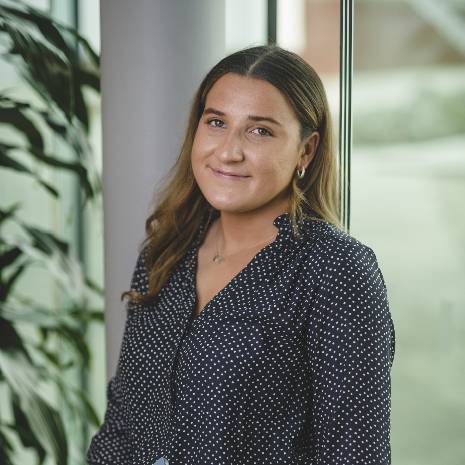
Boeing PLC - Management and Consultancy
BSc Business and Accounting with Industrial Experience
I am extremely happy that I decided to do an industrial placement as it equipped me with the professional interpersonal skills that I wouldn’t otherwise have developed in my studies. This includes the leading of professional meetings and projects, the resilient to bounce back from setbacks and receive feedback from managers and how to adapt to the fast-paced environmental changes that come with the working world.
I initially chose the industrial placement pathway because I wanted to develop my knowledge and skills in a real-life environment. I also wanted to have experience when graduating university so that I was able to establish what I enjoyed and give me an advance against other candidates going into a graduate job. I study BSc Business and Accounting, but because of the flexibility in the choice of modules, I have been able to choose a broad range of knowledge areas including finance and economics and therefore, wanted to do a placement that also covered these areas.
I completed my placement at Boeing PLC, more specifically Boeing Defence UK, who deliver a range of products and services for the MOD, this includes anything from aircrafts to software and technology. My role was a Business Improvement Specialist which meant I looked for improvements in the business practices and processes in order to increase efficiency with the ultimate aim of reducing costs throughout the business. This was a role that I previously wasn’t aware existed but really enjoyed. Therefore, without this experience I would not have been exposed to this area of expertise.
One of the main things that I enjoyed about my placement was the amount of opportunity and exposure to all areas of the business I had. Within the company I was a part of a group of 40 interns that would meet virtually on a regular basis known as the ‘Early Careers Team’. Within the placement, we would often have sessions with experts in different knowledge areas within the organisation and even got the opportunity to ask some questions. In addition, I was able to learn about all areas of the business from hearing about the other interns and graduate’s placement and projects they were working on. Secondly, I was given a lot of responsibility on my placement. This was really good because going into it I hadn’t expected this. For me, I was leading meeting, projects and was even responsible for the planning and execution of an online event with over 200 attendees.
The knowledge and skills I learned from my placement have been invaluable. While I had learnt about a lot of what I used in my placement theoretically on my university modules, the placement was a great opportunity to implement it in practice. I was even able to introduce new ideas to the organisation which they can then look to implement going forward. In addition, the aerospace industry was something I previously had no experience or knowledge in and otherwise wouldn’t have been exposed to. After my placement, this is an area I would like to work in going forward.
Post graduation: Traveling in Australia
Lydia
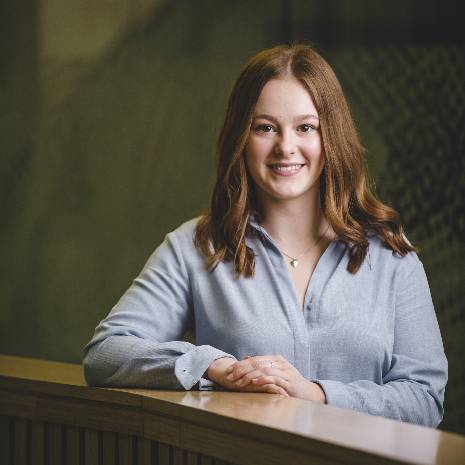
Volkswagen Group UK - Learning and Development Coordinator
BSc Business Management with Industrial Experience
Before coming to university, I wasn’t sure what I wanted to do after graduating. I chose Business and Management because I knew it would give me a great grounding in many business areas, allowing me to focus more on areas that particularly interested me as the degree progressed.
After first year, I knew Human Resource Management was something that I wanted to pursue, so I was thrilled to secure my placement as Learning and Development Coordinator at Volkswagen Group UK. I was attracted to the role because I wanted to work for a large, well-known organisation that had an established undergraduate placement programme so I would feel supported throughout my time there.
Essentially, my role was centred around supporting UK Head Office employees with all of their development needs. Day to day, my role entailed managing queries, carrying out department finance processes, liaising with suppliers and course providers and presenting to the wider business about the learning opportunities available to them. After impressing managers with my writing skills early in my placement, my role was also extended to include internal communications, which I ended up thoroughly enjoying. I also managed the Learning and Development department on two days of the week because my manager was part-time, so when people say you get real responsibilities while on placement, they mean it!
With all of this on my plate, the main skills I developed were time management and prioritisation. I was dealing with a lot of requests from numerous (and sometimes very senior!) employees at any one time, so knowing how to fit everything into my working day was essential. The corporate world is definitely very different to studying at university, so I am glad I have had this experience to help prepare me for graduate roles in the future.
Highlights from my year in industry include launching my own ‘L&D Monthly Newsletter’ to the business which secured subscriptions from over a third of the organisation, including employees at director level. This helped promote a learning culture in the organisation and significantly increased engagement with our development offering, and I also loved the creativity involved in designing it and pitching my ideas to the team. I was also lucky enough to be on the company car scheme whilst on placement, which was another huge highlight!
My advice to other students looking to do an industrial placement is to make the most of the resources available to you from The Career Zone – they really are second to none. This includes one-to-one advice appointments, mock assessment centres and the online ‘YES’ pages on ELE. When on placement, don’t be afraid to suggest new things, especially if you think you have skills in a particular area. This is a great way to get your name known and get yourself onto exciting projects you might not have otherwise had access to.
Post graduation: Traveling in South East Asia
Anthony

NHS England - Analytical Support Officer
BSc Economics with Industrial Experience
I wanted to find an internship in a non-traditional sector to fully explore the opportunities that an Economics degree could bring, and to understand how the skills learnt at University could be utilised in a professional context.
I picked the University of Exeter knowing that I wanted to take a year’s placement during my time at university. Although initially I had little idea of where I would want to go, the Business school was invaluable in teaching me the core fundamentals of CV’s, applications and interviews which gave me the flexibility to choose from a wide range of industries when applying.
I finally decided on an internship as an Analytical Support Officer at the NHS with the aim to experience the role of data analysis in a broader scope than the traditionally economic lens of my course. I was chosen for the Performance Analysis Team, working with the wider NHS team to collect information on Diagnostic Waiting Time and Activity data in order to collate, record and report trends and figures in light of the COVID-19 Pandemic. My primary role during the placement was to collect key data from the trusts, hospitals and private healthcare organisations that worked with the NHS, before organising the figures to highlight trends and important benchmarks caused by the pandemic. I was also responsible for creating monthly reports for this diagnostic data which was distributed internally to aid in the planning and retrospective meetings aimed at combatting COVID-19 efficiently, as well as being published to the NHS website for public and academic use.
This year has given me a definitive demonstration of the ways that the quantitative and qualitative skills learnt at university are constantly needed to deliver in a professional environment effectively. My statistics and mathematics modules have really aided me not only in the manipulation and organisation of vast quantities of data but also in the ability to interpret and analyse this data. Similarly, repeated experiences with writing clear, concise and detailed pieces have translated to the vital task of constructing reports on complex data whilst maintaining clarity and simplicity. However, the workplace has also given me insight in the intricacies between university writing and its professional counterpart. The ability to write for an audience that may not be familiar with your datasets whilst ensuring that all parties can understand key points without getting lost in technical language, graphs and figures has been one of the most important learning opportunities for me this year.
Perhaps the most important takeaway from this year’s placement however is understanding the culture and expected business practices that are nurtured in large organisations. The constant communication channels between teams, from organisation wide briefings to small weekly stand-ups is vital in aligning all members towards a common goal, and this communication, as well as time-management, proactivity and professional standards of work were imperative to be productive in a professional environment.
Whilst I am unsure what the future holds, I am certain that the skills I have developed this year will always be invaluable and my advice for anyone going into a placement is to volunteer for everything! A year’s experience in the workplace is a unique experience, and the best thing to do is to make the most of it and try to soak up as much experience, knowledge, and tools for the future as possible.
Post graduation: Publicis Sapient - Junior Product Manager
Charlie
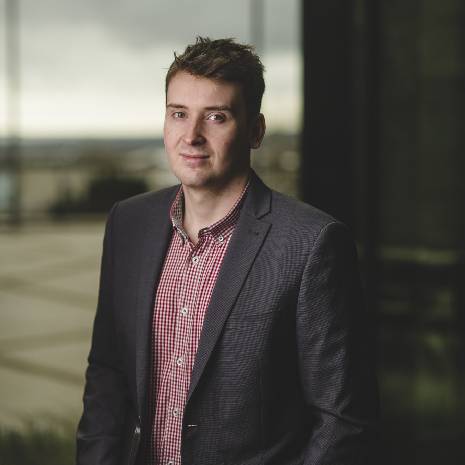
Jaguar Land Rover - Engineering and Product Design
BSc Business Economics with Industrial Placement
When I was working for Jaguar Land Rover (JLR), I worked in the Global Digital Operations team, where I focused on the development and auditing of our Digital Platforms. In addition, I managed key day-to-day responsibilities and ad-hoc tasks relating to website maintenance and co-ordination, both internally and with our external agencies. I also worked in Global Financial Services, in particular helping to increase the retention of customer finance contract renewals. Currently within this is a UK roll-out, which will eventually be rolled-out globally.
I was surprised about how much responsibility I was given at JLR as soon as I started my placement. For example, I had to lead a global audit where I had to manage all of JLR's market leads, and had to ensure that they were resolving the requirements set out by the audit. This gave me a lot of responsibility because without my input, the work may not have been completed to the standard that it was.
It was a great decision for me to undergo a placement because I developed several skills. I have become quite proficient with using Microsoft Excel, such as learning how to isolate, analyse & calculate data, along with efficiently using the tools that Excel provides. I believe my communication skills have improved as well, especially when presenting to large groups of people. I used to get quite nervous, but now I am clear and concise when making my points. Finally, my time management skills, such as meeting a tight deadline, has improved significantly.
Both when looking for a placement and actually being on placement, I was given lots of support. Firstly, the University Careers Advisers helped me massively with interview preparations, and creating a professional CV. Secondly, considering the majority of my Placement has been remote (due to Covid-19) the support both my managers and colleagues at JLR have given me has been brilliant. As soon as I started, people made a real effort to (virtually) engage with me, and if I ever needed help with something, my colleagues were always more than happy to help in any way, which made me feel like they were easily approachable and comfortable to talk to.
Overall, I would encourage anyone to undergo a year-long placement as it is a fantastic experience. I really enjoyed my placement with JLR, as I have been able to learn so many things about cars, as well as the corporate world. Being able to work so closely with such fantastic products, technology & innovation has meant that I have taken a real interest in the automotive industry, and the industry leading experts that work within JLR have really helped me to thrive; something which is not always easy, especially with the limitations working from home has had on the majority of placement students in the past year.
Post graduation: Jaguar Land Rover - Commercial Graduate Scheme
Georgia

HSBC - Retail Banking & Wealth Management
BSc Economics with Industrial Experience
I studied Economics because I loved that the programme offered a broad range of module options so throughout my degree, I could discover what I liked most and what interested me. I applied for roughly 15 placements, landing assessment centres at 3 and having two job offers and deciding to accept the offer from HSBC UK in the Wealth Management and Insurance division. I chose to work at HSBC because I loved their culture and extensive learning and development resources they dedicate to their student programmes through ‘HSBC University’, which I knew I’d be able to utilise throughout my year and learn as much as possible on the programme.
One of my main responsibilities in my role was to create strategic insight reports, highlighting external competitor activity to senior leaders through conducting market research and providing recommendations in response to external market changes to help support senior leadership decision making. I was also responsible for creating a weekly trading overview where I synthesised large quantities of data from numerous sources into an easily understandable format to present to senior stakeholders, including the Head of Wealth Management and Insurance and his directs at weekly update meetings.
Throughout my placement my employer gave me the opportunity to undertake additional responsibility outside of my BAU responsibilities. Through this, I shadowed work in different teams including colleagues in Private Banking and in more technical wealth solutions teams and was given the responsibility to line manage an internship student, where I was solely responsible for defining his projects and supporting his personal and professional development. I loved having the opportunity to shape my role and gain experience in different areas that I was interested in or undertake projects to improve different skills. Line managing an internship student was my favourite responsibility I was involved in as I loved having the opportunity to develop my leadership and managerial skills at such a junior stage in my career.
My placement was an invaluable experience for me to better understand the banking sector and the financial services industry as a whole. I came back to my final year of university with a graduate job offer which has enabled me to dedicate more time to my studies with the worry of job applications taken out of my hands. I returned with a better work ethic having worked 9-5 for a year, and I have developed my professional soft skills which my peers are yet to experience, that I know will set me ahead of my cohort when I graduate.
Post graduation: HSBC - Commercial Banking Graduate
Ella
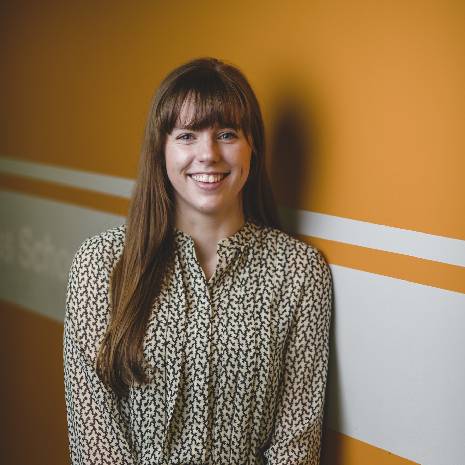
Unilever - Customer Development
BSc Business Management with Industrial Experience
I originally chose to study at the University of Exeter because of the ability to do a placement in my third year. I wanted the opportunity to develop my skills in a professional setting and help me identify the direction of my career. I knew that doing a placement would help my graduate prospects in a slightly less competitive market. Knowing I was going to apply to placements in my second year also engaged me more in the first-year opportunities that I may have otherwise let slip by. I was more eager to find part time work, volunteering experiences and positions of responsibility as I knew these would be very helpful when I was creating my CV and application forms.
Last year I completed my placement year at Unilever working in the Customer Development (Sales) department. Whilst on my placement, I managed the skincare account for ASDA. My main responsibilities involved forecast analysis, identifying price investment opportunities, and negotiating the product range with ASDA. I worked within multiple groups to ensure that both ASDA and Unilever’s needs were met. Analytical and negotiation skills were crucial in my role, and I was glad to have developed these whilst in my first and second year. My favourite part of my placement was seeing the new products that were being developed years before they came to market! It was so interesting to see the priorities of different retailers and what went in to launching a product.
Before applying for a placement, I was unsure what industry or company I wanted to work in. The dedicated placement lectures from the Business School Careers team guided and engaged me early on in searching for different possible placements. I initially liked Unilever because of their strong sustainability initiatives, and I quickly understood the great growth opportunities I would have working there. I applied through Unilever’s normal application process, but I was able to sense check my work with the Business School Careers team during a 1-on-1 appointment where they gave me advice to make my application better. Having the continuous support really helped me not lose focus or motivation when I was applying to lots of different companies.
I thoroughly enjoyed my placement year, learning about Unilever’s brands and through having the sole responsibility of an account I was able to develop my professionalism and responsibility skills. I further developed my time management skills, as University and working life are very different. I can’t wait to return to Unilever in September on the Future Leaders Graduate Scheme. I am so grateful to the University of Exeter Business School.
Post graduation: Unilever - Future Leaders Graduate Scheme
Artem
.jpg)
Taylor Money - Data Analyst
BSc Economics and Politics with Industrial Experience
During my first year of university, I was constantly given opportunities to get more out of my degree. As such, I signed up to complete the Exeter Award – an extra and co-curricular award designed to enhance employability. In one of the workshops, I was introduced to the 12-month placement programme and hence my degree was changed from a three-year course to a four-year BSc Economics and Politics with Industrial Experience. In my second year, I managed to secure an offer from BMW Group, but the offer was withdrawn because of the pandemic. It turned out I was not the only one this has happened to, and the university then put forward a proposal to offer a placement deferral program, meaning my industrial placement was to take place during my fourth and final year.
Without a doubt, it was difficult to manage the responsibilities of final year studies, the presidency of the Ukrainian society and applying for jobs at the same time. But, as I have learned along the way - sometimes the hardest things in life, are the things worth doing the most. Towards the end of the academic year, I was thrilled to accept an offer from a wealth management fund to be working as a Data Analyst.
Located in Cornwall, Taylor Money is a family-run business with a couple of dozen employees. As such, I have been working very closely with the directors from day one and have been assigned responsibilities that I saw made an impact on all other departments. As I kept working with the data side of things, I was also exposed to a lot of investment agendas and expressed an interest in being part of the investment committee. In the coming years, I will be staying with Taylor Money and working within the investment team, whilst also bearing all the responsibilities related to data. I am now working towards the chartered financial analyst (CFA) qualification, for which I have received sponsorship from the directors.
Post graduation: Taylor Money - Data Analyst



